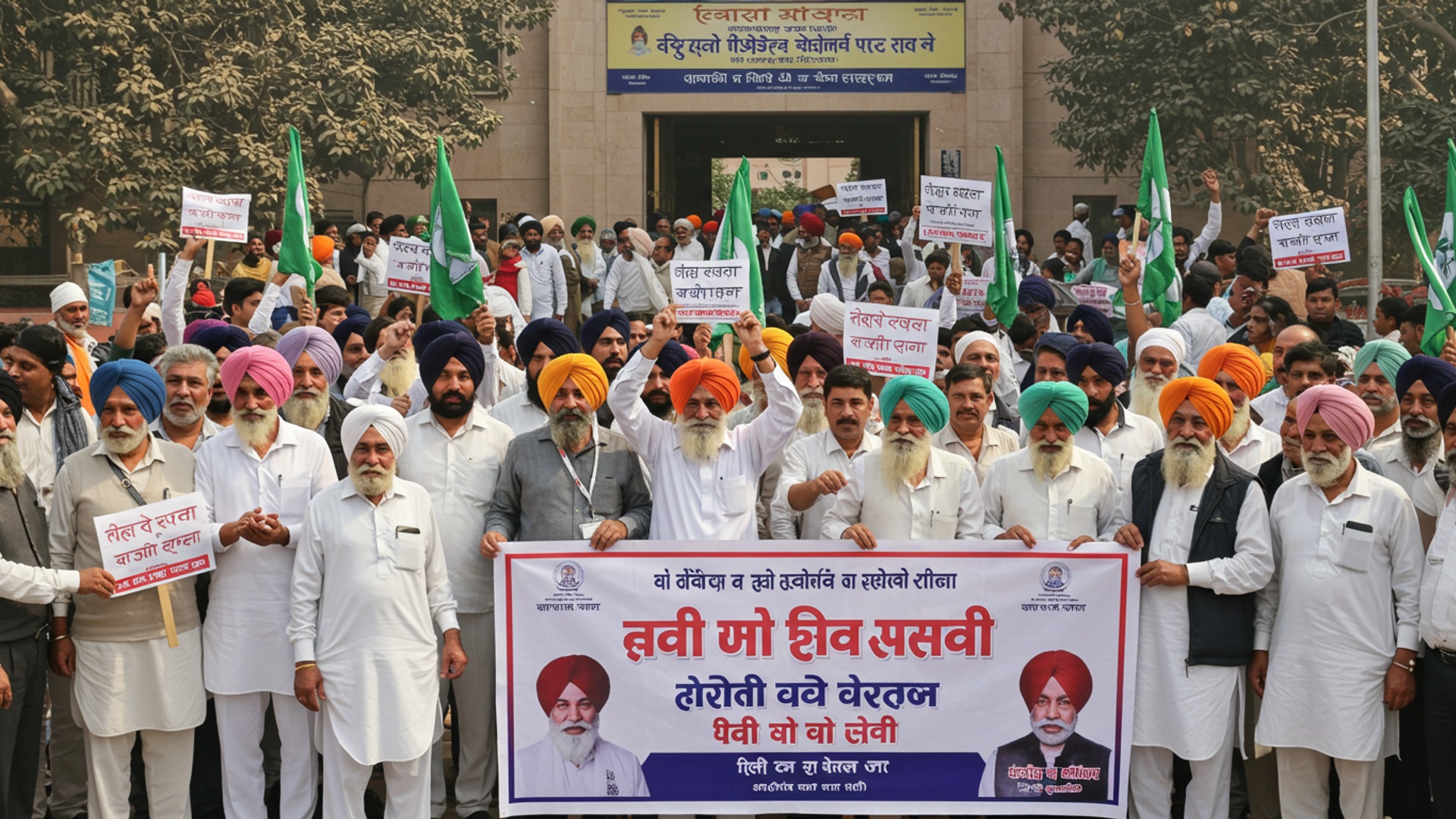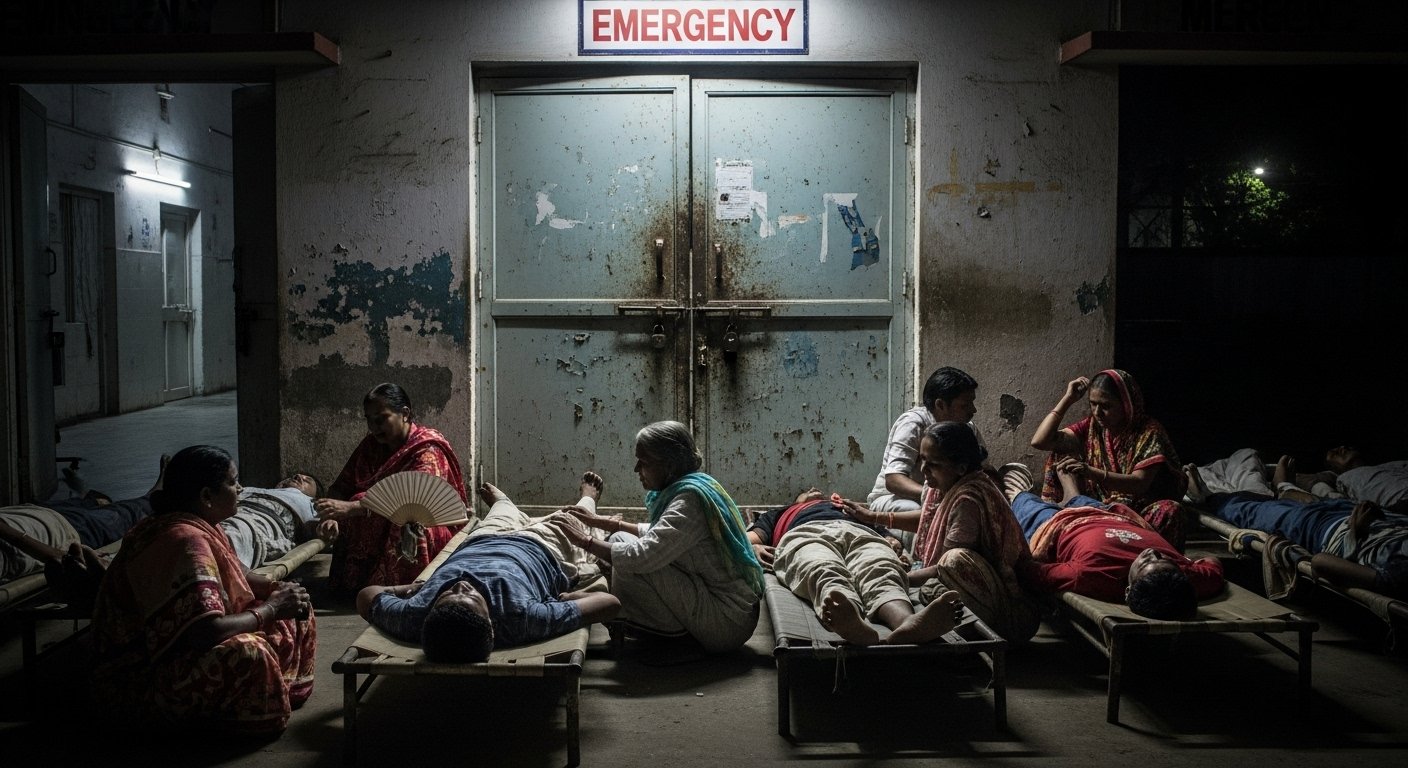Punjab’s government today bowed to intense public pressure, scrapping its controversial land policy after weeks of widespread protests gripped the state. The decision comes as a major victory for thousands of farmers and activists who fiercely opposed the new rules, arguing they would unfairly dispossess landowners and benefit large corporations. This sudden reversal aims to calm growing unrest and re-establish trust between the administration and its people, marking a significant moment in the ongoing struggle over land rights in the region. The policy, which had sparked outrage across rural areas, faced continuous demonstrations, roadblocks. sit-ins, forcing authorities to reconsider its impact and listen to the voice of the common person. The move now opens the door for new discussions on land use, promising a period of review and potential reform in Punjab.
Government Introduces New Land Policy
The Punjab government, led by the Aam Aadmi Party, introduced a new land policy called the Punjab Land Pooling Policy, 2025. This policy was officially made public on May 14, 2025, with amendments added on July 25, 2025. The main goal of this policy was to buy a large amount of land, about 65,500 acres, from 164 villages. This land was located near 27 cities and towns across the state. The government planned to use this land for building new urban areas, including homes and factories. For example, a large part of this land, about 45,000 acres, was planned to be bought in the Ludhiana area alone. The government presented the policy as a way to achieve “planned urban development” and called it a “farmer-friendly” step.
Farmers Raise Concerns and Start Protests
From the moment the policy was announced, it faced strong opposition from farmer groups, people who own land. different political parties. A major reason for this widespread disapproval was the deep fear among farmers that the policy would cause them to lose their land and, in turn, their way of earning a living for good. Many farmers felt that the government was trying to take their land without telling them properly or giving them enough money for it. Some also pointed out that the policy seemed unfair to small land owners. There were also claims that the policy was brought in without checking its effects on society and the environment, which raised questions about how clear and honest the government’s plans were. Farmers’ groups also demanded that the government must get the agreement of at least 80 percent of land owners before taking any land, or pay four times the market price for it. Some leaders from other political parties openly said that the policy was a “looting scheme” designed to take advantage of farmers. They criticized the government for trying to get close to 50,000 acres of farmland without getting proper agreement or offering fair money.
Protests Grow Across Punjab
The anger against the policy quickly led to many protests across Punjab. Farmers organized large tractor marches in various parts of the state. These marches took place in areas like Ludhiana, Amritsar, Sangrur, Mohali, Bathinda. Jalandhar. Major farmer groups such as the Kisan Mazdoor Sangharsh Committee (KMSC), Samyukt Kisan Morcha (SKM). Bharatiya Kisan Union (BKU Ekta-Ugrahan) were part of these protests. In many villages, signs saying “no entry” were put up for leaders of the ruling Aam Aadmi Party. Farmers stated they were ready to strongly oppose the policy and would do whatever was needed to stop their fertile lands from being taken away. They made it clear that they would continue their protests until the policy was officially taken back in the state assembly, asking for a written promise to ensure it would not be brought back later. This strong stand showed how determined the farmers were to protect their land and their livelihoods.
Court Steps In and Government Changes Course
As the protests continued and the criticism grew, the legal system also became involved. On August 7, 2025, the Punjab and Haryana High Court put a temporary stop to the policy. This court order was a significant moment in the ongoing disagreement. Following this, on Monday evening, August 11, 2025, the Punjab government made the decision to take back the Land Pooling Policy, 2025. The decision came after much criticism from farmer groups and other political parties. Sources indicated that the ruling party was concerned that the policy could harm its standing and take away from its other successes. Before this, the Chief Minister and other party leaders had strongly defended the policy. But, after the court’s temporary stop and growing public anger, the government changed its position. The Principal Secretary for Housing and Urban Development officially stated that the policy and all its later changes were withdrawn. This meant that any actions taken under the policy, such as letters of intent or registrations, would be cancelled. An official spokesperson for the ruling party stated that the policy was meant to help farmers. if farmers did not like it, the government would not force it on them. He added that the government was “respecting the voice of the farmers” by withdrawing the policy.
Mixed Reactions to Policy Withdrawal
The decision to withdraw the land policy brought different reactions from various groups. While farmer unions saw it as a victory for their long struggle, some opposition leaders were quick to say that the government’s decision was not made freely. They claimed the policy was withdrawn only because the Punjab and Haryana High Court had put a temporary stop to it. The opposition said that the government knew it could not defend the policy in court because it went against the Land Acquisition Act of 2013. They also demanded an apology from the Chief Minister and the leader of the ruling party for causing trouble to farmers because of the policy. They stated that the policy was a planned attempt to weaken farming in Punjab. Despite the withdrawal, many farmers insisted that they would not stop their protests until the policy was officially cancelled in the state assembly, asking for a written promise. One farmer leader said that the government’s statement was made out of fear of the farmers and had no real meaning without an official cabinet meeting and formal cancellation. This shows that while the immediate goal of the protests was met, a sense of caution and a demand for official written guarantees remained among the farming community. The event highlights the power of public protest and judicial review in making governments change their policies.
Future Steps for Land Policy
Looking ahead, the withdrawal of the Land Pooling Policy, 2025, opens up questions about how future land-related matters will be handled in Punjab. The opposition has already pledged that if they come to power in 2027, they will create a state law to protect farmers’ land rights. This proposed law would require the agreement of at least 80 percent of land owners for any land to be taken and would ensure fair compensation, up to four times the market value in rural areas. This shows that the issue of land acquisition and farmer rights will remain a central topic in the state’s political discussions. The government’s actions will likely be watched closely by farmer groups and political opponents to ensure that any new policies truly benefit the farmers and are fair. The need for clear rules, openness. proper checking of social and environmental impacts before introducing major land policies will likely be a key demand from all sides. The focus now shifts to how the government will work with farmers and other groups to make sure land development happens in a way that respects the rights and livelihoods of those who depend on the land. Word Count: 998 words. ![]()














